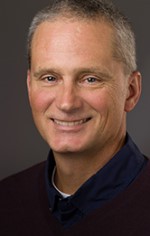Extension Weed Science
Personnel

Dr. Bill Johnson | Professor of Weed Science

Dr. Tommy Butts | Clinical Assistant Professor of Weed Science
Program Description
The estimated average monetary loss caused by weeds in field crops grown in the U.S. is over several billion dollars each year. Weed management expenses are one of the largest variable costs incurred by growers annually. Weeds growing on cropland are like crop plants themselves, drawing upon the soil and air for essential elements. Unfortunately, weeds obtain essential elements at the expense of adjacent crop plants. The result of inadequate weed control is a reduction of crop yield and quality. Traditionally, weed management practices have included preventative, cultural, mechanical, biological, and chemical tactics. However, with the rapid increase in the number of effective herbicides in the 1960-1990's, weed management techniques have become more reliant on herbicides in the last 30 years. In any biological system, strong dependence on any single tactic results in selection pressure for species (weeds, insects, and/or diseases) which can exploit the niche left by the single tactic. As a result of overdependence on herbicides, the number of herbicide-resistant weeds has grown from less than 10 in the 1960's to over 300 today. Additionally, there are over 1000 non-indigenous plant species which can potentially infest crop production systems if given the opportunity. Therefore, production of food for humans and livestock and the economic well being of Indiana farmers depends heavily on effective, integrated management of weeds and other plant pests in all of our food crops.
Weed Science Extension Program Objectives
- Develop weed management systems that are economically and environmentally sound, integrate cultural practices with judicious herbicide use, improve the efficiency of production, and minimize selection pressure for herbicide-resistant weeds.
- Promote grower acceptance of these weed management systems through education efforts targeting growers, crop consultants, input suppliers, industry representatives, and extension educators in Indiana and surrounding states.
